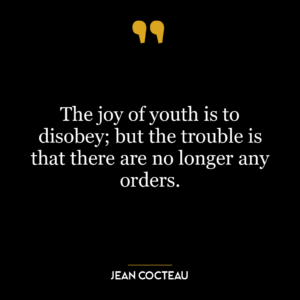This quote explores the concept of minimalism and the satisfaction that can be derived from leading a simple, uncluttered life. It suggests that there is a certain pleasure in forgoing excess, in not having more than what is necessary. The “fine tang” refers to the sharp, distinct taste or flavor that comes from eliminating the superfluous or unnecessary. This could be seen as a metaphor for the clarity, focus, and sense of purpose that can come from living a minimalist lifestyle.
In today’s world, where consumerism and the desire for more often dominate, this quote is particularly relevant. It challenges the notion that happiness and fulfillment are found in material possessions or in constantly striving for more. Instead, it proposes that joy can be found in the absence of things, in the simplicity and freedom that comes from not being weighed down by physical or even emotional clutter.
This idea can be applied in personal development through the practice of minimalism. This might involve decluttering one’s physical environment, simplifying one’s schedule, or even minimizing negative thoughts and focusing on positivity. It aligns with the concept of mindfulness, encouraging individuals to be present in the moment and to find satisfaction in what they have, rather than constantly seeking more.
In essence, this quote encourages us to reassess our definition of success and happiness. It suggests that rather than finding joy in accumulation, we might instead find it in reduction, in stripping back to what is truly important.






